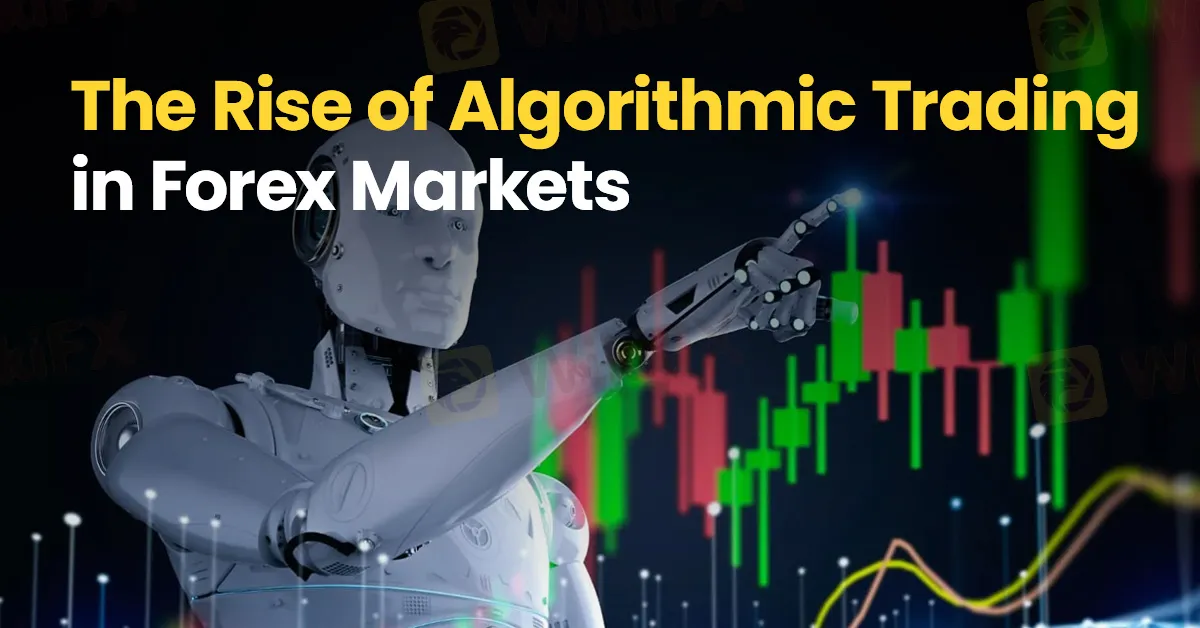简体中文
繁體中文
English
Pусский
日本語
ภาษาไทย
Tiếng Việt
Bahasa Indonesia
Español
हिन्दी
Filippiiniläinen
Français
Deutsch
Português
Türkçe
한국어
العربية
The Rise of Algorithmic Trading in Forex Markets: Opportunities and Risks
Abstract:Over the past decade, the integration of technology into financial markets has revolutionized forex trading. Algorithmic trading, driven by complex mathematical models and real-time data, has become a cornerstone of modern trading strategies. This article explores the transformative impact of algorithmic trading on forex markets, as well as the opportunities and risks it presents.

Introduction
Over the past decade, the integration of technology into financial markets has revolutionized forex trading. Algorithmic trading, driven by complex mathematical models and real-time data, has become a cornerstone of modern trading strategies. This article explores the transformative impact of algorithmic trading on forex markets, as well as the opportunities and risks it presents.
Opportunities Presented by Algorithmic Trading
Algorithmic trading leverages advanced computer programs to execute trades at speeds and frequencies beyond human capability. This automation allows traders to capitalize on minor price fluctuations, execute large volumes of trades in a fraction of a second, and minimize human error. Moreover, algorithms can process vast amounts of data—from historical trends to real-time news—providing a significant edge in a competitive market.
The rise of machine learning has further enhanced these systems, enabling them to adapt to market changes and refine strategies based on past performance. For institutional traders and even sophisticated retail investors, this technology promises higher returns through improved efficiency and predictive power.
Risks and Challenges
However, algorithmic trading is not without its challenges. High-frequency trading systems can amplify market volatility, sometimes triggering abrupt price swings or flash crashes. The reliance on automated systems also brings cybersecurity risks, as even a minor glitch or hacking attempt can lead to significant financial losses. Moreover, the complexity of these algorithms can make it difficult for regulators to monitor and manage systemic risk.
Transparency remains a critical concern. While algorithms operate based on predefined rules, their decision-making processes are often opaque, leaving room for unanticipated outcomes during periods of market stress.
Conclusion
The evolution of algorithmic trading has reshaped the forex market landscape, offering unprecedented speed and efficiency. Yet, as traders harness the power of automation, they must also navigate the inherent risks. Balancing innovation with robust risk management and regulatory oversight is essential for sustaining a healthy, dynamic trading environment.

Disclaimer:
The views in this article only represent the author's personal views, and do not constitute investment advice on this platform. This platform does not guarantee the accuracy, completeness and timeliness of the information in the article, and will not be liable for any loss caused by the use of or reliance on the information in the article.
Read more

OctaFX Flagged by Malaysian Authorities
OctaFX has been officially listed on warning lists by both Bank Negara Malaysia (BNM) and the Securities Commission Malaysia (SC). These alerts raise serious concerns about the broker’s status and whether it is legally allowed to operate in Malaysia.

Why Your Worst Enemy in Trading Might Be You
Be Honest With Yourself: Are You Slowly Destroying Your Trading Account?

TradingPRO: A Closer Look at Its Licences
In an industry where safety and transparency are essential, the regulatory status of online brokers has never been more important. For traders seeking to protect their capital, ensuring that a platform operates under recognised and stringent oversight can make all the difference. Keep reading to learn more about TradingPRO and its licenses.

New SEBI Regulations on Intraday Trading
The Securities and Exchange Board of India (SEBI) has implemented revised regulations on Intraday trading, with effect from November 20, 2024. These regulations are meant to lessen risks and prevent speculative trading practices.
WikiFX Broker
Latest News
SkyLine Guide 2025 Malaysia: 100 Esteemed Judges Successfully Assembled
Vantage Markets Review 2025: Trusted Forex and CFD Trading Since 2009
TradingPRO: A Closer Look at Its Licences
The world could be facing another ‘China shock,’ but it comes with a silver-lining
A Guide to Intraday Forex Trading You Can't Miss Out
CONSOB Blocks Access to 13 Unauthorized Investment Websites
Why STARTRADER Is Popular Among Traders?
New SEBI Regulations on Intraday Trading
Everything You need to know about Barath Trade
OctaFX Flagged by Malaysian Authorities
Currency Calculator


